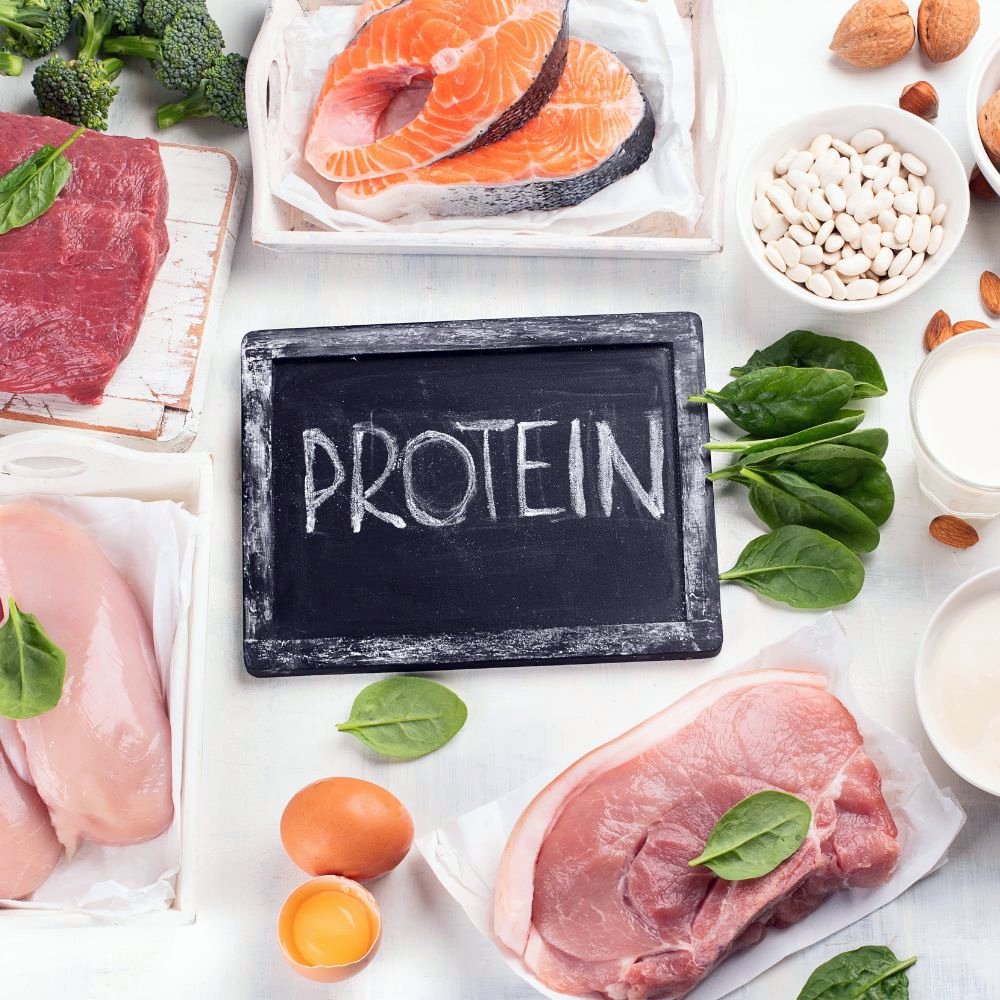When it comes to building muscle, maintaining a healthy diet, or simply staying satisfied between meals, protein is essential. Among the best sources of protein are meats, which provide a rich array of nutrients alongside their protein content. In this article, we’ll explore some high-protein meats that can be incorporated into your daily diet, helping you achieve your nutritional goals while keeping your meals delicious and varied.
Why Choose High-Protein Meats?
High-protein meats are not only effective for muscle repair and growth, but also help in weight management by promoting satiety. They are often rich in vitamins and minerals such as B vitamins, iron, and zinc, contributing to overall health.
Top High-Protein Meats for Daily Consumption
Here’s a list of some of the best high-protein meats that you can enjoy daily:
1. Chicken Breast
- Protein Content: About 31 grams of protein per 100 grams.
- Benefits: Lean and versatile, chicken breast is low in fat and can be grilled, baked, or sautéed. It’s an excellent choice for those looking to increase protein intake without excess calories.
2. Turkey
- Protein Content: About 29 grams of protein per 100 grams.
- Benefits: Similar to chicken, turkey is low in fat and rich in protein. It’s perfect for sandwiches, salads, or as a main dish. Ground turkey is also a great alternative to beef in many recipes.
3. Lean Beef
- Protein Content: Roughly 26 grams of protein per 100 grams.
- Benefits: Lean cuts of beef, such as sirloin or tenderloin, provide a significant protein boost along with essential nutrients like iron and vitamin B12. Incorporating lean beef into your meals a few times a week can support muscle growth and overall health.
4. Pork Tenderloin
- Protein Content: About 27 grams of protein per 100 grams.
- Benefits: Pork tenderloin is one of the leanest cuts of pork and is a great source of protein. It can be roasted, grilled, or stir-fried, making it a delicious option for various dishes.
5. Fish (Salmon, Tuna, Cod)
- Protein Content:
- Salmon: Approximately 25 grams per 100 grams.
- Tuna: Around 30 grams per 100 grams.
- Cod: About 20 grams per 100 grams.
- Benefits: Fish is not only high in protein, but also rich in omega-3 fatty acids, which are beneficial for heart health. Incorporating a variety of fish into your diet can provide essential fats and proteins.
6. Bison
- Protein Content: Approximately 28 grams of protein per 100 grams.
- Benefits: Bison is a lean red meat option that is lower in fat than beef and packed with protein. It can be used in burgers, stews, and more.
7. Lamb
- Protein Content: Approximately 25 grams of protein per 100 grams.
- Benefits: While slightly higher in fat than some other options, lean cuts of lamb can still provide a robust protein source along with beneficial nutrients like iron and zinc.
Important Considerations for Daily Meat Consumption
While high-protein meats offer numerous health benefits, there are several important considerations to keep in mind regarding daily consumption:
1. Quality Matters
- Opt for lean cuts of meat to reduce saturated fat intake. Opting for organic or grass-fed options may also provide healthier fats and fewer additives.
2. Portion Control
- Eating large portions of meat can lead to excessive protein and calorie intake. Strive for balanced meals that include a variety of food groups.
3. Cooking Methods
- How you prepare your meat matters. Grilling, baking, or steaming are healthier alternatives compared to frying, which can add unhealthy fats.
4. Balance with Plant-Based Foods
- Incorporating plant-based proteins (like legumes, nuts, and whole grains) alongside meat can provide additional nutrients and fiber, promoting overall health.
Who Should Limit Their Meat Consumption?
While many people can benefit from including high-protein meats in their diet, certain groups may need to limit their intake:
1. Individuals with Heart Disease
- Those with a history of heart disease should be cautious about high intakes of red and processed meats, which can contribute to heart-related issues.
2. People with Kidney Disease
- Individuals with kidney conditions may need to limit protein intake to reduce stress on the kidneys.
3. Ethical or Environmental Concerns
- Those who choose to follow vegetarian or vegan diets for ethical, environmental, or health reasons should seek alternative protein sources.
4. Individuals with Certain Health Conditions
- Conditions like gout or certain types of cancer may necessitate lower protein consumption. In such circumstances, speaking with a medical professional is advised.
How to Incorporate High-Protein Meats into Your Daily Diet
- Meal Prep: Cook large batches of high-protein meats at the beginning of the week for easy meal options. Grilled chicken, roasted turkey, or baked fish can be added to salads, wraps, or served with vegetables.
- Variety: Rotate different types of high-protein meats throughout the week to prevent boredom and ensure a range of nutrients. For instance, have chicken on Monday, fish on Tuesday, and beef on Wednesday.
- Balanced Meals: Pair your high-protein meats with plenty of vegetables, whole grains, and healthy fats to create balanced meals. This will help you stay full longer and provide a range of nutrients.
- Snacks: Consider using high-protein meats in snacks, such as turkey or chicken roll-ups, or incorporating canned tuna into salads for a quick protein boost.
Conclusion
Incorporating high-protein meats into your daily diet is an excellent way to support muscle growth, enhance satiety, and improve overall nutrition. Options like chicken, turkey, lean beef, pork tenderloin, and various fish provide a diverse array of flavors and nutrients that can be easily included in your meals.
By rotating these meats, considering portion sizes, and balancing your diet with plant-based foods, you can enjoy a nutritious, protein-rich diet every day. Always consult with a healthcare professional or registered dietitian if you have specific dietary concerns or conditions that may affect your meat consumption.

